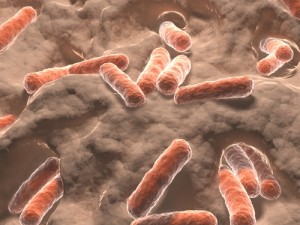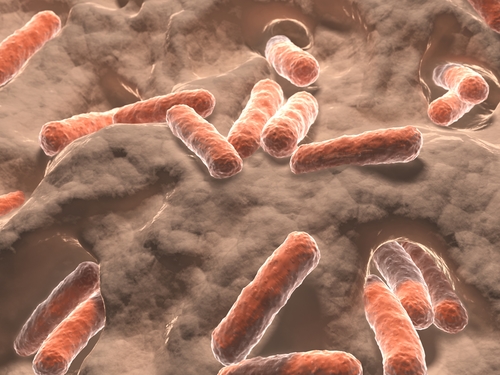 A team of scientists at the Wellcome Trust Sanger Institute recently identified the IL-22 receptor Il22ra1 as a new factor that protects human intestine against opportunistic pathogens, such as the bacteria Enterococcus faecalis.
A team of scientists at the Wellcome Trust Sanger Institute recently identified the IL-22 receptor Il22ra1 as a new factor that protects human intestine against opportunistic pathogens, such as the bacteria Enterococcus faecalis.
Their findings were published in September issue of Cell Host and Microbe in a study entitled, “Epithelial IL-22RA1-mediated fucosylation promotes colonization resistance to an opportunistic pathogen.”
IL-22, important for homeostasis in mucosal barriers, including the gastrointestinal tract, was previously associated with pathological interactions between host and microbiota. However, IL-22’s effects on resistance/susceptibility to pathogens’ colonization were recognized to depend both on native microbiota and inflammatory host statues. In this study, the authors observed that when deleting the gene coding for the IL-22 receptor in mice, Il22ra1 was associated with disruption of the indigenous microbiota, leading to Enterococcus faecalis bacteria dissemination. Microbiota disruption was achieved by infecting mice with Citrobacter rodentium or by chemical-induced colitis. Notably, in humans, Il22ra1 isassociated with Inflammatory Bowel Disease (IBD).
Thus, mice lacking Il22ra1 (Il22ra1_/_), E. faecalis represents an opportunistic pathogen capable of disease.
Tu Anh Pham, study’ first author noted, “The gut prevents over-colonisation by fueling the growth of bacteria that will restore balance. We confirmed this by treating the mouse models with the intestinal coating produced in wild-type mice and found that many of them regained their former equilibrium.”
The team of scientists went further to identify which factor regulated by IL-22RA1 was responsible for the observed phenotype. Analyzing their organoids cultures, a technique that uses stem cells and cells from the original tissue to grow small intestinal tissue, they identified Fut2 (α1,2-fucosyltransferase gene ) as the target of IL-22RA1 signaling. Fut2 regulates both the fucose nutrient environment of the microbiota, as well as host susceptibility to bacterial/viral pathogens. By restoring fucosylation levels in the intestine of Il22ra1_/_ mice, the authors observed a decrease in E. faecalis colonization at the intestinal lumen and mucosa. Notably, fucosylation had no impact on anti-inflammatory pathways’ but it significantly changed microbiota diversity and composition.
The bacteria that proliferated in response to IL-22RA1 receptor activation constitute a promising new therapeutical strategy. Professor Arthur Kaser, Consultant Physician in the Department of Gastroenterology at Addenbrookes Hospital, Cambridge commented, “We might, in the future, be able to harness what we know about this receptor and the bacteria it promotes to protect vulnerable patients. If we can replenish their microbiota and help them produce the correct environment in their gut, we will be able to give them the strength they need to battle infection.”

